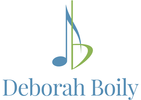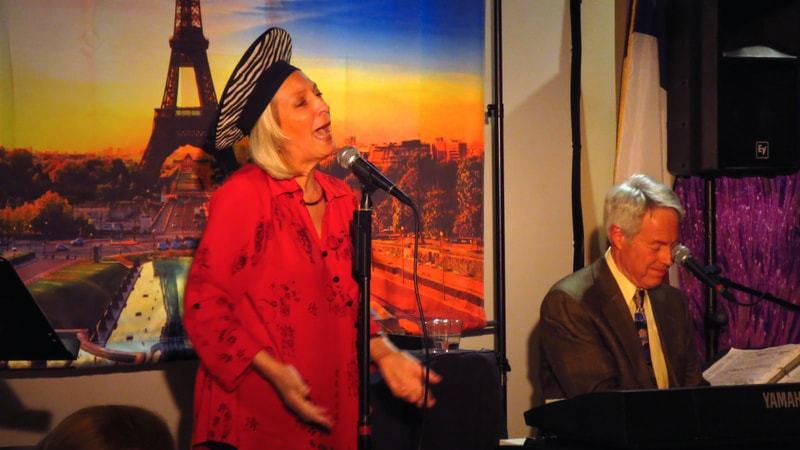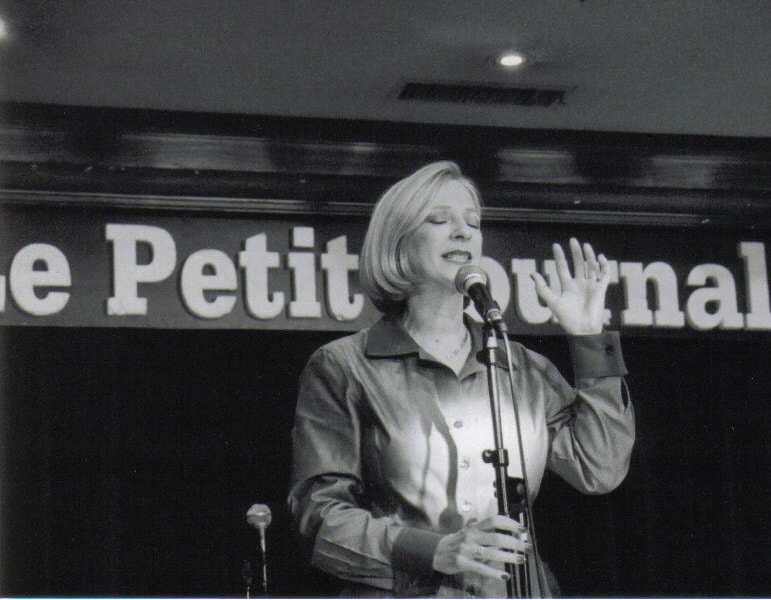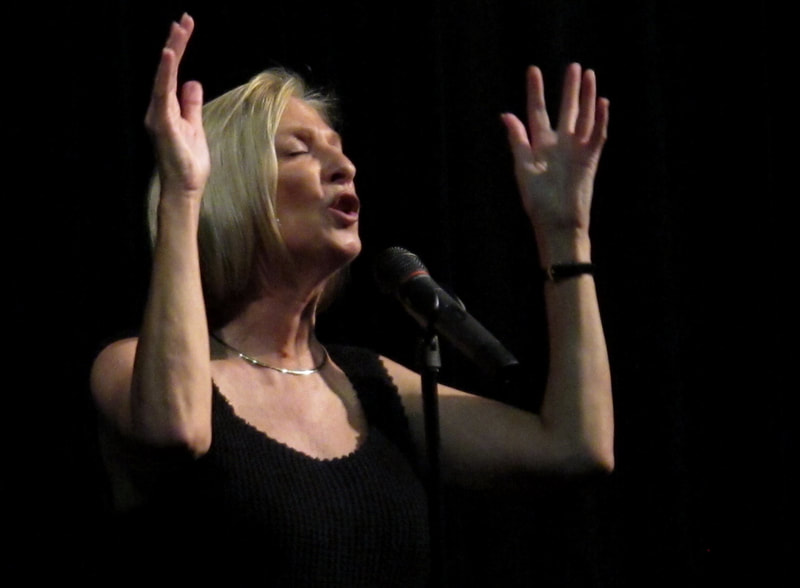"It takes courage to be vulnerable on stage. But when you do, and you tell your story honestly, you will have the audience in the palm of your hand. You are like a magnet drawing them in and it's a magical experience."
"Never hide behind how you sound. There is more fulfillment in connecting emotionally with your material and audience than in wanting 'them' to think you have a great voice."
"Listen to me" versus "Listen to this!"
Many performance styles are primarily focused on the voice and what it does with the rhythm and melodic line of a song. Opera comes to mind where it's original intent was to dazzle an audience with vocal skill and prowess. Pop music today is more about vocal acrobatics than the lyrics. What these two genres have in common is "showing off" the vocals. With Musical Theater and Cabaret performing, the emphasis is really on the story and the story telling.
A good theater performer's goal is always to "be" the character and tell his/her story. It's not about how great they sound, it's not a self conscious effort. The focus is on emotion, motivation, the desire to reveal and share feeling. It is no different than an acting moment, actually it IS one, just set to notes and rhythm. That is what is so exciting to me: the opportunity to combine music and acting in one moment. AND what I have found ironic through the years of performing is this: when you concentrate on telling your story in the most authentic and heart to heart way, the on-looker or listener will experience your voice as beautiful. Why? Because you have touched them, you have connected with them and THAT makes their experience with you a beautiful one.
Those specifically trained to be Musical Theater performers learn that THEY are not the star of the song, they are the messenger of the story, the music and lyrics are the star. Their job is to share the emotional content of the moment with their "partner" on stage and an audience. If and when an audience is moved by that moment, the actor has more than succeeded. This holds true equally with Cabaret performing.
One of the prime aspects of performing of which I remind myself and my students is this very point. I will often point out to them the performers who are self-conscious versus those whose focus is on the emotional content. Simply put, it's the difference between "Listen to me" versus "Listen to this"...
A great exercise is to go on YouTube and look at various Theater and Cabaret performers and see if you can tell what the performer's primary focus is...here are some examples of really wonderful singing actors....
A good theater performer's goal is always to "be" the character and tell his/her story. It's not about how great they sound, it's not a self conscious effort. The focus is on emotion, motivation, the desire to reveal and share feeling. It is no different than an acting moment, actually it IS one, just set to notes and rhythm. That is what is so exciting to me: the opportunity to combine music and acting in one moment. AND what I have found ironic through the years of performing is this: when you concentrate on telling your story in the most authentic and heart to heart way, the on-looker or listener will experience your voice as beautiful. Why? Because you have touched them, you have connected with them and THAT makes their experience with you a beautiful one.
Those specifically trained to be Musical Theater performers learn that THEY are not the star of the song, they are the messenger of the story, the music and lyrics are the star. Their job is to share the emotional content of the moment with their "partner" on stage and an audience. If and when an audience is moved by that moment, the actor has more than succeeded. This holds true equally with Cabaret performing.
One of the prime aspects of performing of which I remind myself and my students is this very point. I will often point out to them the performers who are self-conscious versus those whose focus is on the emotional content. Simply put, it's the difference between "Listen to me" versus "Listen to this"...
A great exercise is to go on YouTube and look at various Theater and Cabaret performers and see if you can tell what the performer's primary focus is...here are some examples of really wonderful singing actors....
|
|
|
Kate Baldwin in performance as Sandra Bloom and right is Anton Zetterholm performing in a London Cabaret event.
|
|
|
The magnificent Ben Platt (Dear Evan Hansen) doing a flawless job and in Cabaret is young actress Kelsey Roberts getting great mileage out of this comic song from "She Loves Me".
|
|
|
Jeremy Jordan 'acting' the song...no better example of an actor who sings...and a favorite of mine, Mary Chapin Carpenter. Notice how still the audience is, magnetized to her story. She is not a theater performer, but a wonderful singer-songwriter. What you are drawn to is not her vocal skills so much as her soulful story telling. A great example of "listen to this", not "listen to me"...
Many people have, by now, performed this song at auditions or performances but this is a great model of how to tell the story...Desi played the lead role of Jenna in the National Tour of "Waitress". She is a star!
|
|
|
Here, side by side, are two incredible performers. One from the Opera/Classical world doing theater and the other trained in Musical Theater performance. Notice how Nathan holds out notes instead of "talking" where Josh Henry does not. He is focused on getting his story and the characters emotional life across where Nathan Gunn is more focused on "singing". That is his training leading him to focus on sound and vocal performance, less on who the character is in this moment. Two different approaches, both supreme professionals. One closer to the Musical Theater philosophy of "don't sing, tell your story". (My personal opinion: the more interesting performance by far is Josh Henry's).
The secret is in your preparation, not in the delivery!
What do I mean by that? Well, most singers get tense when they are about to sing, especially in between phrasing, within the body of the song, and that is actually sabotaging your performance. Why do people do this? Because their brains are telling them to "control" the performance.
However, the secret lies in the moments between phrases, in the breaths you take and what you do with that breath. Those are the moments on which you must focus and in doing that, you have control. Focus on the breath and setup of the next phrase, then let it go.
"Instincts" and singing do not go together
Singing is a "counter-intuitive" action. That means the seemingly natural things your brain is telling you to do are actually "counter" to what will make for a relaxed and healthy performance. Have you ever looked up to the ceiling when going for high notes? Or worse yet, raised your chin to the ceiling for high notes? Yes, right? Or, have you found yourself digging down in your throat for low notes? These are just two examples of what singers do that are totally opposite to the results you want...
Another typical thing beginning and untrained singers do when about to sing is GRAB in the throat. I call this "throat-based singing". Despite the fact that your mind tells you to go there, it's very wrong. Instead, a healthy singer becomes an "abdominal-based" singer. That means, when you go to open your mouth to make music, your body reacts, your abs expand automatically and your throat remains relaxed. It is not needed at all to achieve any of the singing results you desire. The only thing important about the throat area is that it houses your vocal chords. That's it. Learn to become a body based, (abs) singer and the freedom you want will be yours.
What does "singing ON the breathe mean?
Many vocal and choir teachers say "sing from you diaphragm" but it really is the lower muscles that are involved when USING the air you take in. The diaphragm will be vital in this process, but those abs are the work horses in using the breathe you've taken in. My wonderful last coach made me appreciate the idea of breathing as deep down in the abdominal cavity as possible. I picture an elevator going to the basement. But, what do you do with that air once it's reached the deep parts of your body? That's the essential skill to singing with power, ease, longevity and confidence...
Once you have your breath, you hold it and sing on it. That air is like the carpet on which your notes will ride.
Another image for how to use your intake breath is this: imagine you have just put $100 (intake of air) in the bank (your abdominal area). Now, you have to decide how to use that air within the phrase about to be sung. You don't spend it all at once, you spend only what is needed i.e. for the held-out note, for the high note, for the long phrase you are about to sing. That breath needs to go a long way sometimes. And, when your brain perceives you are running out, it will guide you to go to your throat, never a good idea. So, breath often, in the right places, and use the air wisely...
Cell: 713-480-9338 [email protected]
Proudly powered by Weebly





